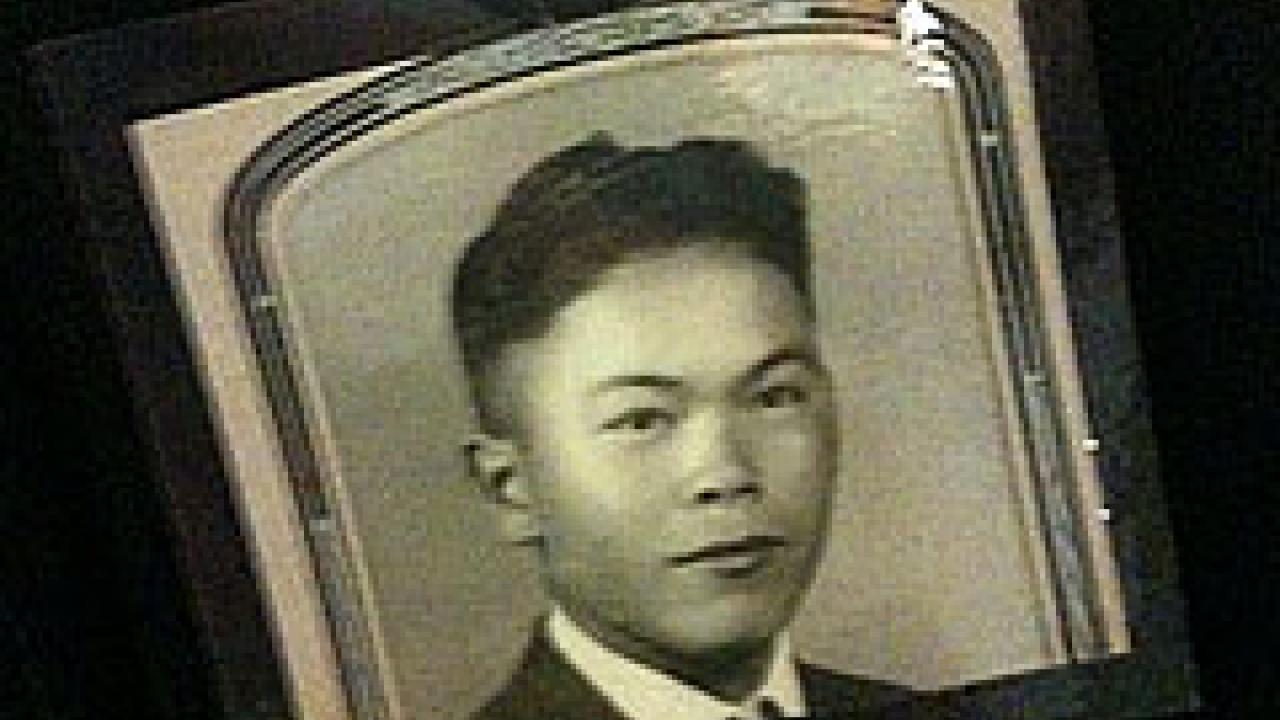"Talk about Kleenex. My daddy getting his degree, it just makes you want to cry."
Christine Pooley swelled with emotion after a University of California honorary degree was conferred on her late father, who had been forced from his studies at what is now UC Davis during World War II. "This is like closure," she said.
Pooley's father, Henry Satoru Marubashi, was one of 47 former Japanese American students honored amid the pomp and circumstance of a graduation ceremony at UC Davis on Dec. 12.
Receiving their degrees in person were three California residents: Yoshio John Kashiki of Parlier; Ben Hatanaka of Stockton; and Harold Haruya Takahashi of Rocklin. Family members and friends represented 10 other honorees.
"It was very nice," said Hatanaka, surrounded by proud family members representing three generations. "I'm honored."
Hatanaka, the first one in his family to get into college, had his studies interrupted when he and more than 110,000 Japanese nationals and Japanese Americans were forcibly interned.
Later, he served in the 442nd Infantry Regiment of the U.S. Army and was a truck farmer. "I made the best of it. At least I got to see Europe," he said with a grin.
Dan Simmons, who co-chaired the UC task force that supported the effort to award the degrees, addressed the honorees and guests at a luncheon after the ceremony. "The creation of these honorary degrees … has opened the door for many of you to tell your stories to your children and grandchildren," he said.
"This is a teaching moment for the University," said Simmons, who is a UC Davis law professor and UC Academic Senate vice chair. "We want our own graduates … and their families to know your stories.
"We want them to know your stories so that fears born from misunderstanding of differences do not lead to hatred and discrimination. We want them to know your stories to learn that we do best by respecting each other’s commonality and each other’s differences," Simmons continued.
The university continues to seek other former Japanese American students who are eligible for the honorary degree. The degree diploma includes the following wording: "Inter Silvas Academi Restituere Iustitiam" or "to restore justice among the groves of the academe."
More information about the honorary degree program and the people who have received them is available online.
A video of the graduation ceremony is available on demand.
The UC Board of Regents voted in July to grant special honorary degrees to hundreds of men and women forced to leave their studies at the university as a result of the internment of people of Japanese ancestry during World War II.
Approximately 700 students at four UC campuses were interned in 1942 after President Franklin D. Roosevelt signed the executive order giving the military the power to send Japanese Americans and Japanese nationals to internment camps.
In the wake of Japan's 1941 attack on Pearl Harbor, Order 9066 authorized military commanders to exclude all people of Japanese ancestry from "military areas," including California and most of Oregon and Washington.
At the time they were on campus, most of the UC Davis honorees were from Sacramento, the Bay Area and the Central Valley; some were from Southern California. They were studying agricultural economics, plant science, truck crops, soil science and horticulture, among other specialties.
The honorary degree was conferred on all of the 47 UC Davis students, living and dead and regardless of whether they earned degrees elsewhere after their release from the detention camps. The ceremony also acknowledged former students who were interned but returned to UC to finish their degrees.
About UC Davis
For more than 100 years, UC Davis has engaged in teaching, research and public service that matter to California and transform the world. Located close to the state capital, UC Davis has 32,000 students, an annual research budget that exceeds $600 million, a comprehensive health system and 13 specialized research centers. The university offers interdisciplinary graduate study and more than 100 undergraduate majors in four colleges -- Agricultural and Environmental Sciences, Biological Sciences, Engineering, and Letters and Science. It also houses six professional schools -- Education, Law, Management, Medicine, Veterinary Medicine and the Betty Irene Moore School of Nursing.
Media Resources
Julia Ann Easley, General news (emphasis: business, K-12 outreach, education, law, government and student affairs), 530-752-8248, jaeasley@ucdavis.edu
